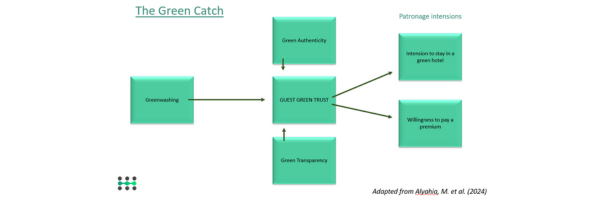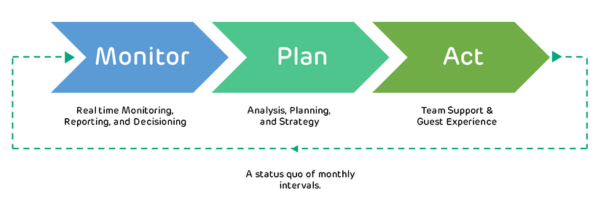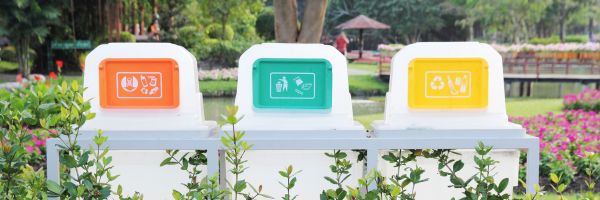Where should you look to make big energy savings at your hotel? Your first area to focus on is the energy used to heat/cool your guest rooms and public areas. This will most likely represent 60% of your total energy consumption. In this article we will demonstrate how much is wasted and how you can […]
Australia-Irish pioneering sustainability company, WISE Sustainability, has taken home the Gold award in the international Responsible Tourism Awards, recognised for its innovative software solutions that help hotels, resorts, and extended-stay apartment brands advance their environmental performance. Competing in the highly competitive Climate Change category, WISE Sustainability stood out among strong contenders from North America, Europe, […]
AI has been nowhere near this article. Fundamental change is now occurring across the world in company sustainability compliance reporting. Right now, managers are scrambling to understand the new directive and fathom how to comply. In this article however, I propose that this is the opportunity many hospitality businesses have been seeking, a way to […]
Energy is a key cost and emissions factor for hotels, resorts, and timeshares, as they are high
energy intensive buildings which operate 24/7. Even though cleaner and more efficient
equipment has made vast improvements, rising temperatures and energy costs require…
Waste is a major problem for hospitality because unlike other carbon emissions categories, waste is primarily driven by human behaviours and so technologies alone cannot solve the challenge. People often focus on reducing waste by looking at how best to dispose of waste i.e., to recycle. But this still traps waste within your operations and costs money! There can be a better way to cut waste from the start…
The Budget announcements of the 9th of May see the Australian government allocating billions of dollars to new and existing renewable and sustainability tech, research, and investments to reduce businesses carbon emissions. Several agencies…
Did you know some of the ways we save energy can actually be counterproductive? Our efforts can escalate costs, increase indirect carbon emissions, and leave us with wasteful practices ‘built in’ to our daily operations in hotel, resort, timeshare, apartments, or self-contained cabins. In our race to reduce carbon it might seem only natural to […]
Responsible tourism is more than minimising your impacts where you travel – it is also about extending the benefits of your trip into the wider community, improving the social, economic, and environmental wellbeing of where you visit. Responsible tourism matters because it helps communities, ecosystems, the tourist, and improves the lives of all involved. Additionally, […]
The greenest hospitality businesses in the world won’t do anyone much good for long if they’re not making money. Talk of sustainability usually (and understandably) revolves around the environment, about waste and conservation. I have written about those topics and will do so again – but not here. This post is about economic sustainability, and […]
It’s easy to get swept up in the promise of technology. It gives us something to fall back on. However much of a mess humanity makes, we can rest easy. Surely efficiency and innovation will save the day in the end, right? On their own, no. I believe in technology, but it is only as a force for good insofar as we choose to make it so.











